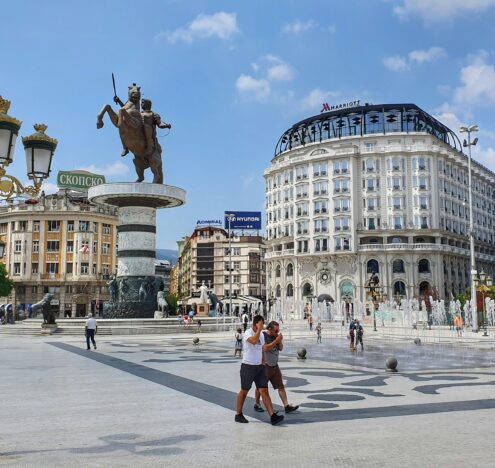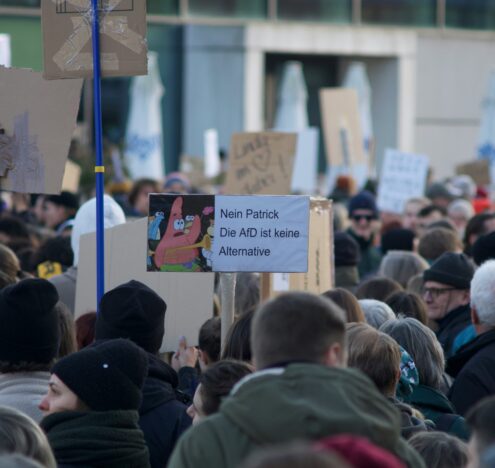This analysis was featured in Critical State, a weekly newsletter from Inkstick Media and The World. Subscribe here.
Last week on Deep Dive, we looked at new evidence that UN peacekeeping missions of the modern era, with their wide-ranging mandates and environmental awareness, can have measurably positive effects on host country water quality. This week, we’ll look at another issue area that has become a focus for peacekeepers as peacebuilding has become a vital part of the peacekeeping portfolio: The economic well-being of civilians.
As we noted last week, in addition to deterring ceasefire breaches and preventing the resumption of conflict through direct engagement with the major parties, peacekeepers since the Cold War have taken a more expansive view of their role in conflict zones. If conflict is a result of structural factors as well as choices by individual actors, the theory goes, then preventing a return to conflict requires addressing structural issues. One of the most fundamental structural issues — and one that is often exacerbated by conflict — is economic deprivation.
In a recent article in the American Journal of Political Science, Vincenzo Bove, Jessica Di Salvatore, and Leandro Elia try to parse out the effect that peacekeeping missions have on household consumption in economies that have been riven by conflict. They are less interested in UN programs specifically targeted at household consumption than in increased consumption as a positive externality of peacekeeping-driven increases in security. By their theory, the only impetus civilians need to begin returning to pre-war economic activities is a measure of physical safety from the ravages of the war.
The fact that people eat better when peacekeepers are doing their jobs really does seem to be an externality of reducing conflict.
To study their theory, Bove et. al. look at survey data from South Sudan during a period when the UN peacekeeping mission there — UNMISS — was specifically charged with conducting civilian protection operations. In the period they studied, some 15,000 blue helmets worked to improve civilian security in South Sudan during a time of both humanitarian and political crisis. It is a useful case for their theory both because of the focus on civilian protection and because the World Bank conducted multiple rounds of a large-scale, detailed economic survey during that time. The granular data generated by the World Bank allowed the researchers to plot how deployments of peacekeepers down to the county level affected the economic conditions civilians in those counties reported experiencing.
The correlations between peacekeeper deployment and consumption are substantial. Bove et. al. found that peacekeepers being deployed in a county predicts an almost 28% increase in the average amount of food civilians in that county consume. Similarly, the likelihood of missing meals falls 10%.
One way to interpret that data would be to say that peacekeepers likely directly inject a fair amount of money into the economy wherever they go, just by buying food and other supplies locally, and that their economic inputs could account for the increased consumption. That would make it less likely that the consumption gains had anything to do with security provision per se, but instead were the result of a kind of roundabout form of humanitarian aid.
Bove et. al., however, tested that interpretation by measuring the effect of peacekeepers on civilian perceptions of security. When peacekeepers were present, civilians reported feeling safer, they didn’t have to travel as far to get to a market, and they were more optimistic about the course of their lives. Once Bove et. al. controlled for all the indicators of increased civilian security, the increased consumption effects basically went away. That is, money from the peacekeepers can’t explain much of the consumption increase without the broader security improvements that the peacekeepers provide. The fact that people eat better when peacekeepers are doing their jobs, then, really does seem to be an externality of reducing conflict.




















